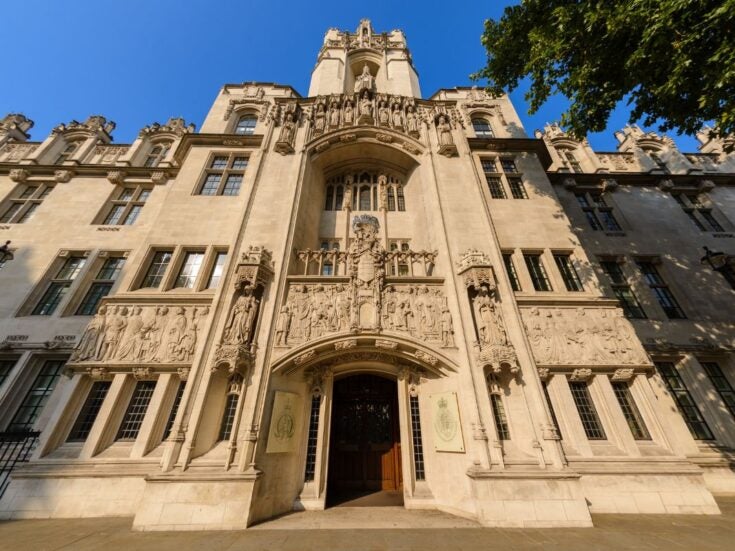
A recent High Court case highlights the vital importance of having a ‘Titanic clause’ in your will, writes John Melville-Smith
Property passes, by will or intestacy, from the deceased to a survivor. The recent, sad case of Winter v Cutler illustrates the problems that can arise when it is unclear which is which.
John and Ann Scarle were found dead in their home on 11 October 2016, both having died of hypothermia sometime between 5 and 9 October. Police and expert evidence as to the differing states of decomposition of the bodies pointed to Mrs Scarle having died first but the bodies were found in different rooms, she in the toilet and he in the lounge, and it was not possible to say whether and to what extent the ‘microclimates’ of the rooms might have contributed to this.
Why did it matter? Because, under section 184 of the Law of Property Act 1925, where two or more persons have died in circumstances rendering it uncertain which of them survived the other(s), such deaths shall, for all purposes affecting the title to property, be presumed to have occurred in order of seniority, and accordingly the younger shall be deemed to have survived the elder.
Whoever ‘survived’ was entitled to the other’s estate, whether under Mrs Scarle’s will if she died first, or the intestacy rules otherwise. But who survived whom? Mr Scarle was the older of the couple and thus section 184 arguably created a presumption that he died first, with Mrs Scarle inheriting his estate before dying herself, resulting in their combined estates passing to her children. No, said Mr Scarle’s daughter: section 184 creates no presumption and, anyway, the evidence suggested that Mrs Scarle probably died first, her father inherited his wife’s estate and then died, with the result that it all passed to her instead.
It is hard to escape the conclusion that neither such an outcome, nor the litigation necessary to determine it, is what either parent would have wanted and that step-sibling rivalry lay at the heart of a dispute which cried out for settlement long before trial.
Commons sense
As ever, Parliament legislated and the judges have interpreted what it meant, in a handful of cases involving Second Word War bombs, maritime disasters and gas leaks. In the leading 1945 case of Hickman v Peacey, two brothers were among those killed together in a basement air raid shelter by a single bomb during the blitz. Each had made a will leaving a legacy to the other. It was argued that the facts indicated that both brothers must have died simultaneously, so there was no uncertainty as to which of them died first, thus section 184 was inapplicable. The House of Lords disagreed. Lord Macmillan said: ‘The language of the present enactment…poses a practical question: can you say for certain which of these two dead persons died first? If you cannot say for certain, then you must presume the older to have died first. It is immaterial that the reason for your inability to say for certain which died first is either because you think they both died simultaneously or because you think they died consecutively but you do not know in what sequence… All that is necessary in order to invoke the statutory presumption is the presence in the circumstances of an element of uncertainty as to which of the deceased survived the other.’
A year later, in the 1947 case of Re Bate, a couple died from gas poisoning in their kitchen. Mr Bate was found on top of his wife, whose body had a lower level of carbon monoxide. Here, like in Winter, simultaneous deaths were not the issue; one certainly survived the other. The court held that, while the evidence indicated the probability that Mrs Bate had died first, it was insufficient to lead to a firm and definite conclusion, thus section 184 was engaged and the younger Mrs Bate was deemed to have survived her husband.
The judge in Winter said that section 184 did not create a presumption or a change in the required standard of proof; it was merely intended to provide a practical way of dealing with cases of uncertain order of death: ‘The section does not create a presumption which may be rebutted. The presumption only arises when the sequence of death is uncertain. If the order of death is proved, the presumption does not arise…’. He went on to say that the burden of proof is the usual civil burden, being on the balance of probabilities. This is arguably consistent neither with the wording of section 184 nor with Hickman – since a marginal (51/49) finding of fact by a judge undoubtedly has a very substantial (49 per cent) element of uncertainty built into it, surely enough to invoke the presumption, given that uncertainty is its trigger.
In any event, the judge concluded: ‘The only evidence which could point unequivocally to the sequence of death is the relative differences in decomposition, but does it? I am left with two not improbable explanations for this effect. The first is that Mrs Scarle pre-deceased her husband, the second that the micro-environment of the toilet area was warmer than the lounge. I cannot discount the latter in the absence of evidence from which I could reliably reach such a conclusion. Accordingly, I cannot fairly draw the inference that it was the former. [Mr Scarle’s daughter] has not satisfied me to the civil standard as to the order of death, it remains uncertain.
Therefore, Mrs Scarle was presumed to have survived Mr Scarle, with the result that her daughter scooped the combined pot.
While such circumstances are happily rare, they can be so easily avoided by both making a will containing either or both of a ‘Titanic clause’ – from the eponymous disaster and dealing with the armageddon scenario in which everyone dies in a single tragedy – or a survivorship clause, providing that the beneficiary must survive the testator for a period, typically around 30 days, so that both spouses’ estates are dealt with as though they were already widowed at the point of death.
John Melville-Smith is a partner at Seddons
Read more







